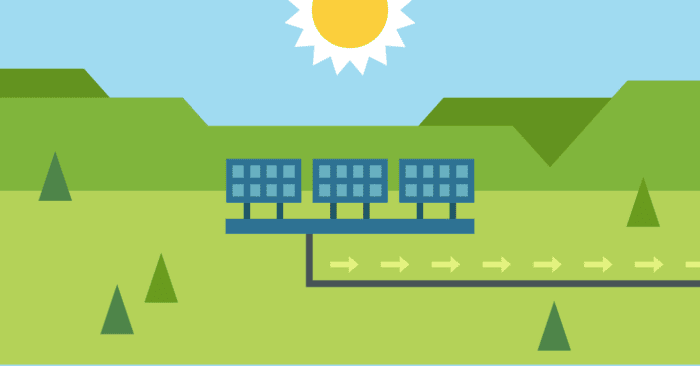ISO-NE files its Order No. 2222 compliance proposal with FERC

ISO New England today filed its Order No. 2222 compliance proposal with the Federal Energy Regulatory Commission (FERC), following a robust stakeholder process and substantial coordination among a large number of affected entities across the six New England states, including prospective distributed energy resource (DER) aggregators, electric distribution companies and meter readers, electric retail regulatory authorities, and others.
FERC’s order
Order No. 2222, Participation of Distributed Energy Resource Aggregations in Markets Operated by Regional Transmission Organizations and Independent System Operators, was issued by FERC on September 17, 2020. The order requires ISOs and RTOs to modify their tariffs to reduce barriers to the wholesale market participation of DERS by allowing DERs to provide wholesale services through distributed energy resource aggregations (DERAs).
To comply with the order, ISOs/RTOs were required to amend their tariffs, as necessary, to establish DER aggregators as market participants and address eleven key compliance directives to facilitate DERA participation. Most notably, ISOs/RTOs were required to create new, or modify existing, participation models to accommodate DERAs with multiple technology types. While the initial compliance filing deadline was July 19, 2021, ISO New England was granted an extension to February 2, 2022 for its compliance filing.
To date, ISO New England has enabled thousands of megawatts of DERs to participate in its markets through development of multiple participation options, some of which already allow for the aggregation of DERs. However, as technologies advance and small DERs proliferate, certain individual DERs may be unable to meet minimum size and performance requirements. Order No. 2222 reasoned that more of these resources might meet those requirements through aggregation and thus be able to participate in wholesale markets alongside traditional resources to provide flexible services to the power grid, increasing competition and producing more just and reasonable rates.
The ISO’s proposal
The ISO’s compliance proposal, which was supported by the NEPOOL Participants Committee on January 6, 2022, creates two new market participation models and amends several existing models in order to allow the participation of DERAs in the region’s energy and ancillary services markets. Further, the proposal amends the tariff in order to allow DERAs to participate as capacity resources in the Forward Capacity Market (FCM).
In addition, to comply with enumerated FERC directives, the proposal:
- sets a minimum size of 100 kilowatts (kW) for DERAs;
- includes an opt-in provision for small electric distribution companies;
- creates a registration process to allow electric distribution companies to determine whether DERA participation in wholesale markets may pose risks to the safe and reliable operation of the distribution system;
- and creates a framework to coordinate the real-time operation of DERAs and DERs with electric distribution companies and aggregators.
Next steps
The ISO has proposed two effective dates for its Order No. 2222 compliance proposal. The ISO has proposed that FCM-related changes go into effect in the fourth quarter of 2022, in order to allow the ISO to complete changes necessary for DERAs to participate in Forward Capacity Auction (FCA) #18.
The energy and ancillary services market changes would be effective in the fourth quarter of 2026, such that resources can be commercial and integrated ahead of the FCA #18 Capacity Commitment Period that begins on June 1, 2027.
Additional information about the ISO Order No. 2222 compliance proposal, including presentations, memos, and stakeholder comments are available on the ISO’s Order 2222 key projects page.
- Categories
- Industry News & Developments
- Tags
- distributed energy resources, energy storage



